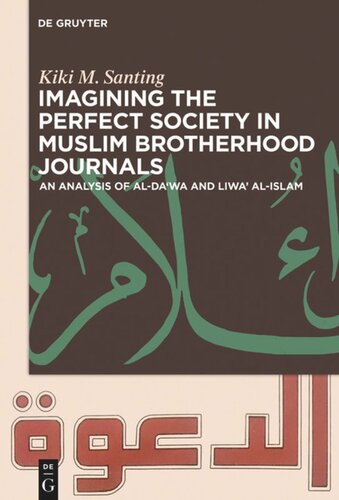

Most ebook files are in PDF format, so you can easily read them using various software such as Foxit Reader or directly on the Google Chrome browser.
Some ebook files are released by publishers in other formats such as .awz, .mobi, .epub, .fb2, etc. You may need to install specific software to read these formats on mobile/PC, such as Calibre.
Please read the tutorial at this link: https://ebookbell.com/faq
We offer FREE conversion to the popular formats you request; however, this may take some time. Therefore, right after payment, please email us, and we will try to provide the service as quickly as possible.
For some exceptional file formats or broken links (if any), please refrain from opening any disputes. Instead, email us first, and we will try to assist within a maximum of 6 hours.
EbookBell Team

4.1
90 reviewsThe investigation of the Egyptian Muslim Brotherhood during the presidencies of Anwar Sadat and the early years of Hosni Mubarak is based on the movement’s main journals, al-Da‘wa and Liwā’ al-’Islām, presenting its history during two relevant periods: 1976-1981, 1987-1988. These journals show that, contrary to the focus in modern research (e.a. sharia laws, gender relations, or ideas of democracy), the Brotherhood is a much more broadly oriented, social-political opposition movement, taking Islam as its guideline. The movement’s own versatile discourse discusses all aspects of daily and spiritual life. An important adage of the Brotherhood is Islam as a niẓām kāmil wa-shāmil, ‘a perfect and all-encompassing system’. Faith should play a role in every aspect of daily life, from cooking dinner and housekeeping to education, holidays, enemy images, legislation, and watching television. Islam is everything, and everything is Islam. In its journals the Brotherhood provided its unique reflection of the spirit of the age. The movement presented itself as a highly reactive group that responded to current events and positioned itself as a moral, religious and political opposition to the Egyptian regime.